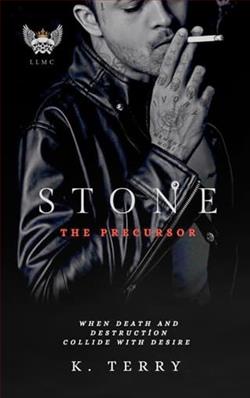Page 60 of 2 Sisters Murder Investigations
Then Dorothy had disappeared from her home, both her front and back doors left hanging open.
Perhaps feeding my misery, perhaps procrastinating to avoid beginning the eight-hour drive back to Los Angeles, I looked up the contact info for theTimesjournalist who’d written the article about Dorothy. Johnathan Brite. I was pleased when Brite took my call, but he sounded bored when I explained who I was and what I was seeking.
“The cartel killed her,” he said. I heard a car horn blare. He was apparently spending his time the way most LA journalists did — stuck in traffic en route to or from a story. “She annoyed them by messing with their club expansion.”
“Are you sure?” I asked Brite. “I mean, I’ve read the articles and I heard the same thing from a cop I know. But why is everyone so certain that that’s what happened to Dorothy?”
“Because it makes sense.”
“But — ”
“They left the back and front doors open,” Brite said. “The guy that owns the club? He’s a high-ranking member of the local chapter of the Tormenta Thirteens. The open-doors thing is, like, that gang’s calling card or whatever. It’s supposed to represent a storm blowing through the house.Tormentameans ‘storm’ in Spanish, I think.”
“Okay.”
“They’ve rubbed out a bunch of people that way. Rival drug dealers. A couple of prostitutes who held back on their cartel pimps.”
“So that’s it? No other angles have been seriously investigated in Dorothy’s disappearance?” I asked. “What if she ran off? Faked her own death? Or what if she fell victim to someone else?”
“You ever heard of Occam’s razor?”
I sighed.
“Look, there’s no angle here,” Brite said. “I’ve written what I can about it. But they ain’t ever gonna find that woman’s body. They never do with these cartel guys.”
“But if the cops and the locals are so sure that Dorothy was killed by a gang, why haven’t there been any arrests?” I asked.
The journalist’s laugh hammered my already battered ego.
“Sounds like a nice world you’re livin’ in, lady, where people commit crimes and the cops come around and do something about it,” he said. “Be sure to let me know if a spot opens up for me there, will ya?”
I sighed again as Brite clicked off. The diner cook picked up one of my empty plates and gave a small, satisfied smile because I’d all but licked it clean. Then he stopped. Someone had dashed to my side.
I turned and felt a rush of adrenaline as I saw Reina Hansen lift her chin at the cook, her tiny hands spread wide on the counter beside me.
“Can I just get a quart of two percent, Hank, please?” she asked. Her jaw was tight and her eyes were firmly fixed on the cook. He set my plate back down and went to a section behind the counter where I assumed he kept grocery supplies for customers.
For a second, I thought Reina didn’t realize that I was beside her. Which was unlikely — between the tattoos, the pink hair, and my outsize style, no one fails to notice Rhonda Bird. I looked down and saw that Reina held a couple of bills for the milk in her right hand, and in her left, the hand closer to me, she had a tiny roll of paper tucked between her index and middle finger, like a cigarette. She tapped the end of the rolled piece of paper on the counter to get my attention. I turned on my stool and saw Barney Hansen on the street, his head bent and a finger stabbing the air as he talked into a cell phone.
I took the piece of paper from Reina’s fingers, grabbed my stuff, and moved swiftly to the restrooms before Barney could glance into the diner and see me. In the safety of the stall, I unrolled the paper and looked at the name written there in what I assumed was Reina’s delicate, curly cursive.
Chelsea Hupp.
With trembling fingers, I got out my phone. The lock screen was covered with hundreds of notifications for news stories about the discovery of Daisy’s body. I typedChelsea Huppinto Google and sank onto the closed lid of the toilet seat. There were hundreds of Chelsea Hupps in the world. I addedUkiahand found a thirty-year-old news story:
“Police Stumped by Local Girl’s Death.”
CHAPTER69
AS THE VETERINARY NURSEexited the emergency vet’s examining room, she gave Baby the kind of disgusted look you give to something pulled out of a shower drain. Granted, Babyfelta little like something dragged through a pipe by a hook. She was tired, battered, and scared. They’d rushed Mouse to the emergency vet clinic, but it had been hours of waiting. The nurse directed the same look to Arthur as she peeled off her surgical gloves and tossed them into a bin behind the counter.
“That animal,” she said coldly as she approached them, “has been used as a fighting dog. Is that correct?”
“I don’t know,” Baby said. “It’s possible. We’ve had him only a few days. I noticed the scars on his belly and his throat.” She tried to sound confident. “I assumed he got them either from dogfights or from beatings from his previous owner.”
“Uh-huh.” The nurse sighed through her nose. “And where did you obtain the dog, exactly?”
Baby thought of the ruse she’d pulled at the shelter. She licked her dry lips. “A friend gave him to us.”















